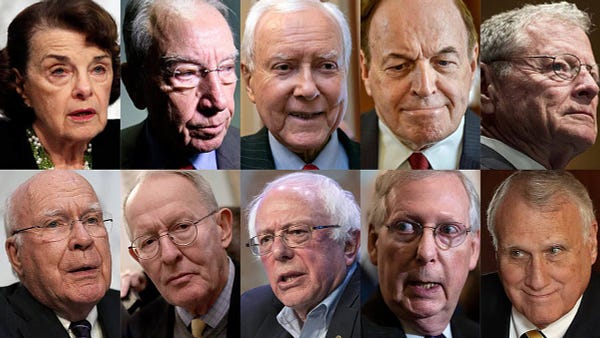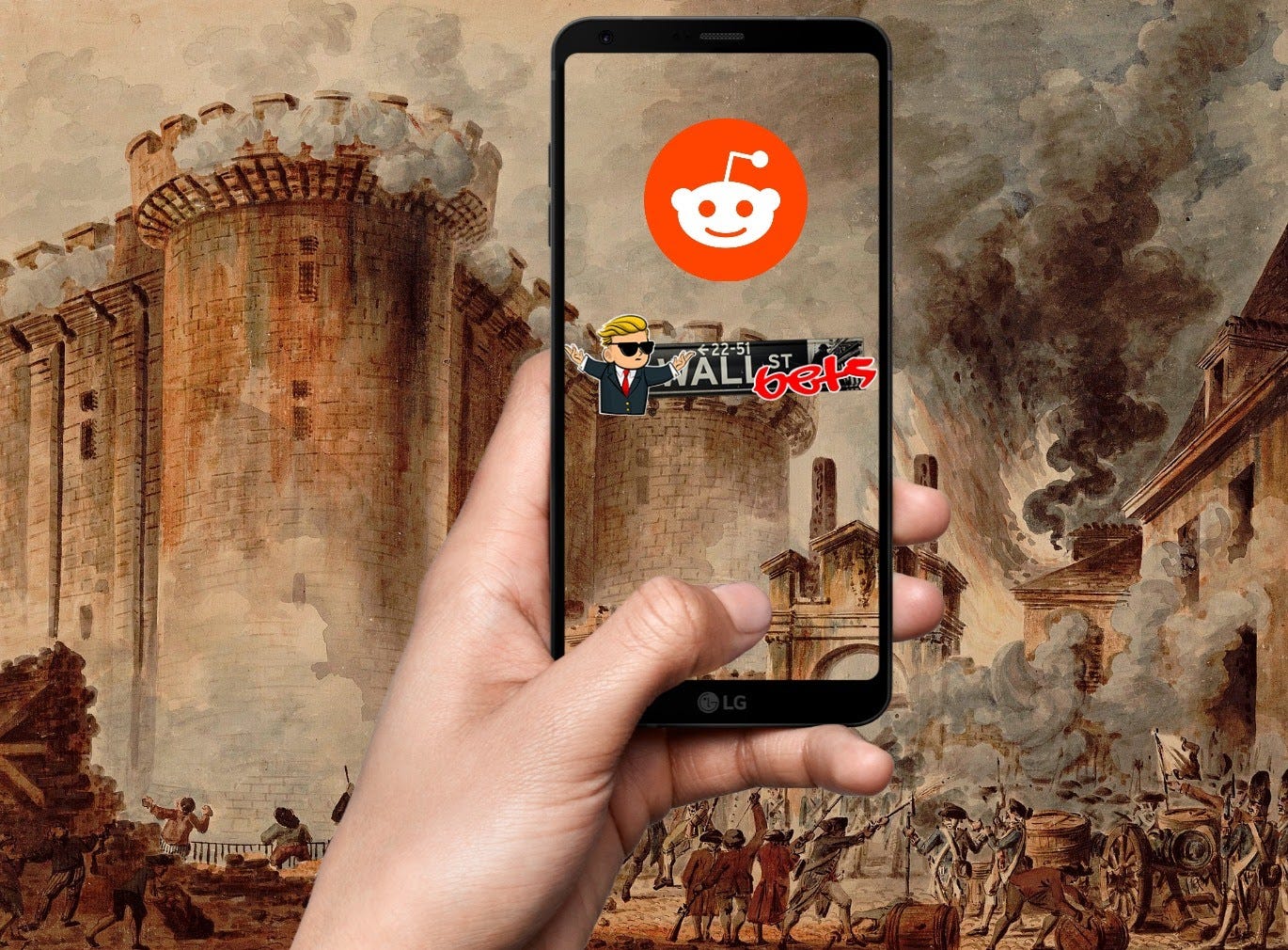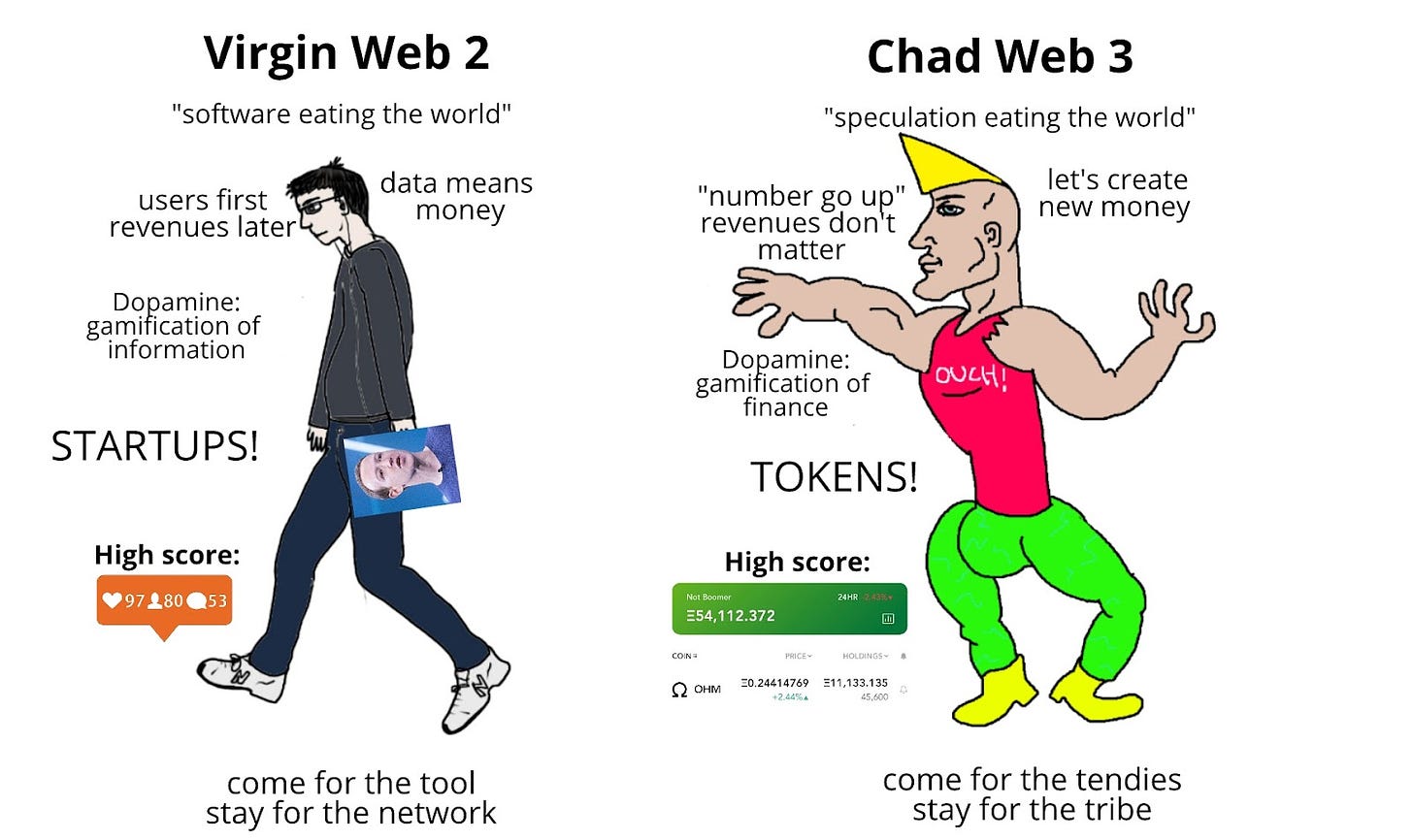The financial innovation we are building into the internet is transformative. We are unleashing a permissionless hyper-financialization to clash with permissioned over-financialization and government monopoly on money. This is the basis for a socioeconomic revolution.
How one thinks this will play out depends on how one views the past. One could see too much innovation as dangerous, or one can view the financial history as a series of crises resolved through technological and financial innovation.
Below I attempt to frame the buzzword of Web 3 in the context of the socioeconomic shift it represents and the greater conflict of the Boomer generation and technological innovation.
Boomers and Information Revolution
It's important to understand "Ok boomers" beyond the meme. Boomers are more than a generation. Instead, they are a multi-generational ideology that grew into a world order. It transcends the Baby Boomer generation.
Founded by the Silent generation, a belief system matured under the Boomers, extending all the way into calcified parts of Gen-X and Millennials. Boomerism is an ideological framework that makes institutional organization its end goal.


It has become a culture obsessed with maintaining power, focused on enlarging an organizing structure which embeds that power. The fly-wheel is created by advocacy, then institutionalization; rinse, repeat, building the structure organically.
Like any established power-structure that has ever existed Boomers are stuck in myopia. The system is willing to trade long-term health for power and wealth maintenance today. Boomers are a world order in a similar position to the 19th century monarchy in Europe; unsustainable but willing to clash with the future. The analogy does not stop here.
The invention of the PC and the internet is an equivalent to radical ideas of the republic culminating in the French Revolution, a clash of the new ideas with the monarchy in 1789. Boomer world order that was not built to deal with the information technology revolution.
Boomers hoped that the internet was fake all along. Gradually, over the course of 2010s boomers began to understand the transformational nature of the internet.
We live in times of a grand transition. The Web's effect on social scalability is transformational and the old regime struggles. The magnitude of the coming changes could be on a scale of Europe’s transition from monarchy to republic.
What Does Web 3 Mean?
The beginning of the internet adoption, the Web 1 era, was built on mostly community-governed open protocols. The open web in the 90s was not successful as it was monopolistically captured by the centralized and closed source corporations of Web 2.
The disruptiveness of the Web was not apparent to Boomers from the very beginning. Early on it was seen as a largely foolish and non-profitable venture. When business models started to work in the early 2010s, it was still misunderstood and seen as a fringe part of the economy.
As the Web 1 era had low traction and Web 2 era was run by corporations. The conflict did not surface until the web became a political battlefield. Web 3 is inherently at odds with the Boomer establishment as it attempts to govern, weakening Boomers’ legitimacy.
We live at the brink of the Web 3 blockchain-native era introducing not just novel business models but a brand new socio-economic organization. But what are blockchains fundamentally?
At the high level, blockchains are mainly “state machines”. They keep records of the “last state of affairs” on which everyone agreed (via consensus). We are separating (nation) state from money and replacing it with a new (blockchain) state.
This new state-keeping is the backbone of the value transfer mechanism for which a third party such as a nation state or a bank is not needed. The future of the web is not a nation state but online tribes governed by the code running their own banks and funding their own endeavours.
Boomers are shoehorning the internet into the existing world order rather than adapting to accommodate a changing technology landscape. Reconciling boomer institutions with the internet is futile since Web 3 is inherently at odds with current institutional structure.
Some are beginning to be opportunistic in realizing that the financial flows on Web 3 could become a source of revenue. However, taxing something requires understanding how it works. With a goal of ruthlessly extracting the revenue the Boomers in charge drift further from understanding the technology.
Web 3 does not fit current mental models. Uniformly applying rules built for a different time hinders an understanding of what Web 3 really is. Regulators are jamming Web 3 into square holes because, to them, magic internet money is an outlandish concept.
Web 2’s unbundling of information distribution (social media) already undermined Boomers control. Imagine how much of their control would be eroded if the magic internet money becomes a real thing. This is an existential threat to the existing monetary and financial order.
But Web 3 is more than just magic internet money: it’s magic internet money embedded in magic internet land populated with magic internet people. It is safe to say that it remains a buzzword, just like the AI; it means nothing and everything.
The best way to define it right now is in the context of the political transformation it represents. It is a set of technological solutions wrapped in a socio-economic phenomenon that does not fit with the Boomer status quo.
The Future Without France
Web 1 has discovered the web. Web 2 has populated the web. Web 3 will be partitioning the web. That is; it will allow different communities to create their own corners of the web that will become sovereign. Web 3 allows for a secession of online tribes.
The past was tribal and the future will be no different. Chris Dixon’s described Web 2 by a simple phrase:
“The network” in Dixon’s famous quote refers to a wider social graph that is attached to traditional Web 2 social networks like Facebook, Instagram or Twitter. Web 2 has provided a globalized infrastructure from which a general social graph has emerged.
Web 3 slightly modifies the above to:
“Come for the tendies, stay for the tribe.”
A tribe is a cluster of nodes within a network. In this context, a tribe should be understood as a group of persons having a common character, occupation, or interest. Most definitions of tribe refer to a network of people that share a belief system or some other form of belonging. The secession of different tribes describes how these networked clusters will interact in their corner of the Web.
Tendies, short for chicken tenders, is a term used by traders on Reddit's Wall Street Bets (WSB) to describe money or any financial gain. The “come for the tendies” part is a reference to the economic motivation behind these pseudonymous tribes.
When a bunch of internet trolls organized a shortsqueeze of institutional investors, known as a Gamestop Affair, it was a symbolic attack on an order that is long overdue. An online tribe of normies fighting Wall Street is a soft version of the Storming Of The Bastille.
This was a coordinated attack of an internet forum tribe against financial institutions who had a short position against the company. It was a show of resistance and a display of what the future might look like. But this was just a very primitive form of a tribe.
Cryptoassets or tokens are new forms of money embedded directly into these permissionless networks, changing the relationship between money and the internet. In Web 2 money was made off the internet. In Web 3 money is created on the internet. Users become creators, sales, owners, operators and customers.
Tokens are a key ingredient in forming Web 3 and have the potential to supercharge online tribes. Crypto tribes effectively operate their own “banks”. Tendies are important and could soon be embodied in mostly tokens. Tokens formalize alliances and align tribes’ incentives.
The motivation to join the crypto tribe could be a financial gain, but many stay in the tribe because of the sense of belonging. In an increasingly digital and remote world, a sense of belonging is less natural and more difficult to create; therefore, its value online goes up to the "belonging starved" individual.
Financial freedom is great; but it does not necessarily lead to fulfilment. A purpose does. A tribe of motivated and financially free individuals driven by a collectively defined purpose is a force to be reckoned with.

Bitcoiners, LINK Marines, Ethearans, SNX holders, OHMies and many more are primitive online tribes. These are just a proof of concept. Some of these just ride a price high and may not be around for long.
The future is not one token per tribe. Tribes will likely evolve into resembling online investing syndicates similar to ChaosDAO (which is not an actual DAO) or Egirl Capital. To scale beyond the Dunbar number, they’ll likely coordinate through actual DAOs, formalizing norms and rules.
Tribes do not have to necessarily be big in numbers, but they will control vast amounts of financial capital. Many will be jumping between tribes, making tribes a pretty fluid concept. But there will be barriers and borders - successful tribes may be permissioned.
It is worth noting the existing token tribes could overshadow builders (hence Bitcoin/Ethereum maximalists). These primitive forms of tribe are polluting the conversation but these are the rules of memetic sales. The best products do not always win.
Also, there is an ongoing problem of tragedy of commons that plagues blockchain protocols. To ensure their survival, online tribes have to design sustainable methods of funding innovation. There is yet a lot overcome for tribes to be operating efficiently and coherently. But the foundation is there.
Markets Are Eating Networks
Startups are the hallmark of the Web 2 era. Token networks seem to be replacing startups in Web 3, or at least becoming rivalrous to “equity in a startup”. This is the foundation for the era of online tribes, and a summary of the key differences between Web 2 and 3.
The arena for the Web 2 was the newsfeed of social media. It does not look like it’s changing but the difference is that you “come to Twitter to brag” about what you did in the cryptomarkets - what you bought and what you sold, essentially talking about what is your score.
A Twitter or Facebook newsfeed is built on a closed source globalized social graph full of digital noise. Web 3 will allow various tribes to secede from this globalized social graph, connecting through private chat rooms (today mostly Discord or Telegram) and open source financial networks that amplify the signal.
Whereas the newsfeed has been a 24/7 global mini talent show, cryptonetworks are a 24/7 quest for generational wealth. The follower and like counts do not matter as much as your token balance. First we gamified media now we’re gamifying finance.
Online tribes emerge around two types of money:
Context-independent money with horizontal relevance e.g. Ethereum, OHM or Solana - representing a financial graph.
Context-dependent money aka NFTs, meaning they could be a status symbol representing an ownership of the culture of a given online tribe. But also represent something less abstract like an IP.
NFTs are also based on the financial graph but carry a social element. They also seem to be the connecting piece between Web 2 and 3 as they potentially represent a primitive social layer with an access economy attached (see Guild).
Soon, users will be able to comment on NFTs and send messages to the owner. For many, an NFT would become a symbol of their pseudo-anonymity and will connect them to others. An economy is emerging around these unique digital assets which will not be valuable because they are scarce but mostly because they represent an identity.
And what if a NFT becomes an IP? Imagine a world of permissionless research in which online collectives come together to tackle a specific issue. A reddit forum for a specific medical topic is harmless. If you give these collectives an ability to own and fund the research we can unbundle biotech and pharma distribution.

Web 2 startups were built by the “users first, revenue later, then stock price go up” playbook but token networks seem to be built on a different premise:
“Number go up” first, then come users and revenue.
This also translates as “turning speculators into users'', describing the process of an emerging network economy. Bootstrapping liquidity is also an ownership acquisition phase. This is when a tribe is formed. The most productive conversations do not happen in an open arena of Twitter - this is where sales takes place.
We are moving away from the giant chatroom into a more private setting of Discords. The new social media will be more like a suite of “tribe management tools” (e.g. seamless interoperability between the private chatroom and a DAO treasury). The web of the future will be permissionless but likely partitioned.
Facing The Final Boss
With “state-machines” the digital world is no longer arbitrary or abstract as borders are emerging. We are copying what a (nation) state did with the geography and replacing it with (blockchain) state on the web.
Tribes are emerging microeconomies, de facto online pseudonymous individuals operating their own banks, their interest aligned by governance tokens. This is Web3 to me - new tribal economies in the cloud. In that sense tokens are a primitive digital social contract, somewhat laissez-faire in its current provisory setup.
Online tribes, whether formalized in DAOs or not, are the counterculture enabling the individual to thrive alongside the collective. Ask not what the tribe can do for you but what can you do for the tribe... and hopefully prosper. If you don’t then that is a failed tribe.

Web 2 revolutionized communication and Web 3 added permissionless finance, giving the tribe a means of economic organization. Now online collectives can do more than just chat. They can filter the noise as the discoverability is enhanced through the financial graph of the underlying state machines. Flow of money becomes the signal.
As these tribes discover themselves a new concept for digital self-determination emerges. How compatible is this with the current world order since we are founding sovereign digital societies?
It will be interesting to see once tribes take on the meatspace, its rivalry with governments becoming more apparent. Through Web 3 online tribes are likely to re-emerge from the digital and do things only governments (and Elon Musk) are supposed to do.
I expect that these movements will aspire to send rockets to Mars, fund nuclear fusion research, invest in biotech and do all what is deemed unthinkable or foolish by the boomers. But this will take time.
The era of organized online tribes is only in its infancy and building a robust tribe requires more than riding the price high.
I would like to thank Shaun, Amir, Brady, Cam, Chris and Su for their valuable inputs.







I'll take wall street over anonymous decentralized tribalism, and regulated corporations over magic internet money even more heavily monopolized by the likes of peter thiel, winkelvoss twins et al